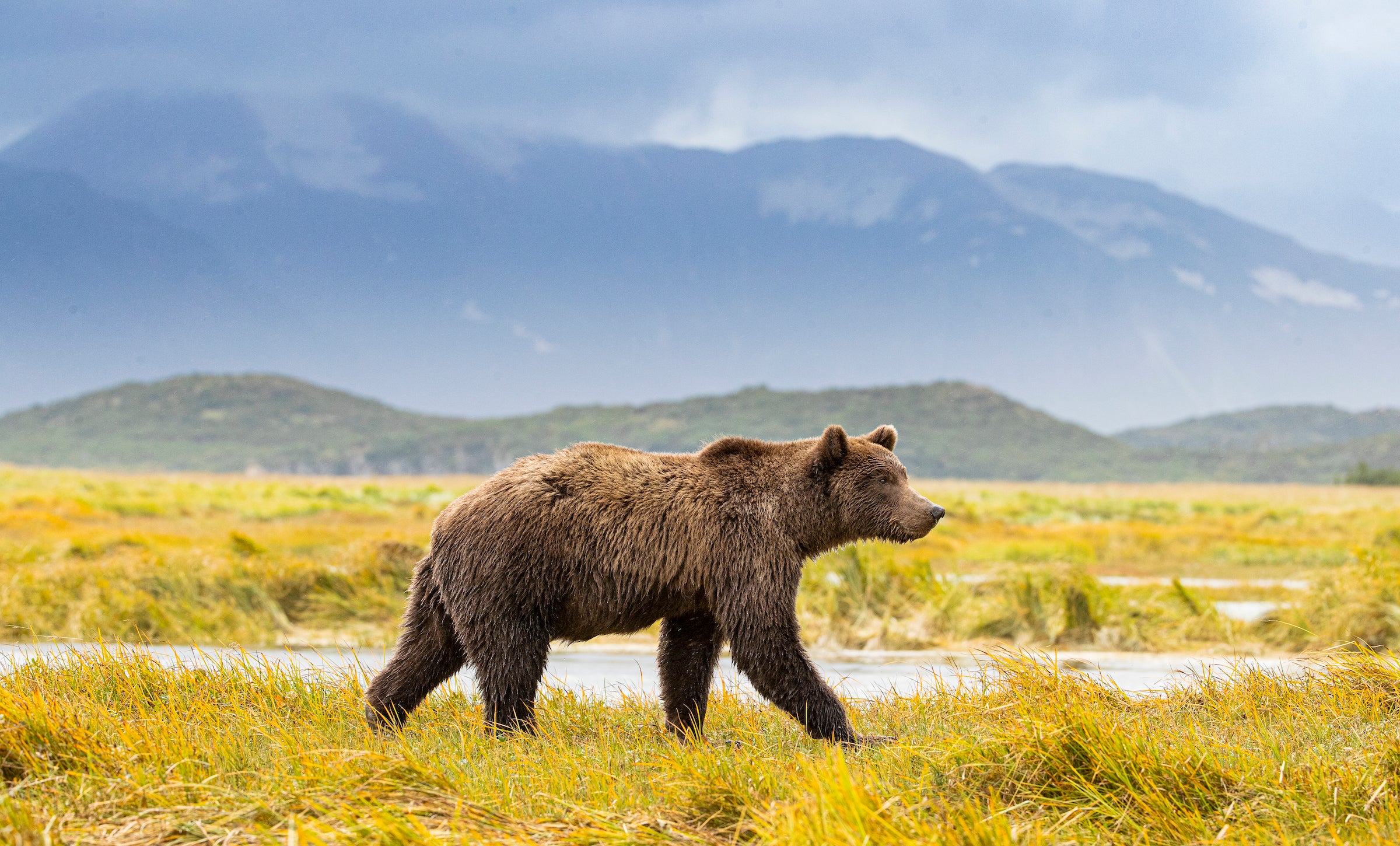Thanks to Bear Spray, Hiker Survives Brown Bear Attack in Denali National Park

Grizzly bear (Photo: Dennis Stogsdill/iStock / Getty Images Plus via Getty Images)
A 55-year-old hiker in Denali National Park survived a brown bear attack on Sunday night and walked away with only minor injuries thanks to his proper deployment of bear spray. The tourist from Indiana was hiking alone in the Thorofare Pass region of the park when a sow and two cubs charged him from nearby bushes, according to a park service press release.
The bears knocked over the hiker and bit him in several places before he unloaded a canister of bear spray, causing the animals to flee. He was then able to hike a mile and a half to a visitor center where he met a park transit bus.
According to the statement from park officials, tourists on the bus who happened to be medical professionals provided first aid to the man while the bus driver called for help. The hiker was transported by ambulance to Fairbanks Memorial Hospital and is in stable condition. He suffered puncture wounds on his calf, ribs, and shoulder.
“Due to the apparent defensive nature of this attack, there are no plans to locate the bear involved,” park officials said in a statement. “Female bears with cubs are naturally defensive of their young, especially when surprised. There is no indication that this bear is unusually dangerous.”
Following the attack, park officials closed the backcountry area where the man was hiking for one week.
Bear spray, which is essentially a highly-concentrated pepper spray, is the best defense against bear attacks: Studies have shown that it works to deter aggressive bears 98 percent of the time. Bear attacks are also far less likely to occur when hikers travel in pairs or groups rather than alone.
The majority of brown bear attacks are defensive and a result of humans startling bears. Make noise when hiking in bear country, and stay aware so you don’t get between a mother bear and her cubs. Make sure your bear spray is accessible: Clip it to your belt or pack sternum strap so you can deploy it quickly in an emergency.
This incident follows a handful of other bear attacks in North America this year, including five fatalities. While those numbers are above average, wildlife managers and biologists say there’s no evidence that the rise in bear incidents is anything but chance.